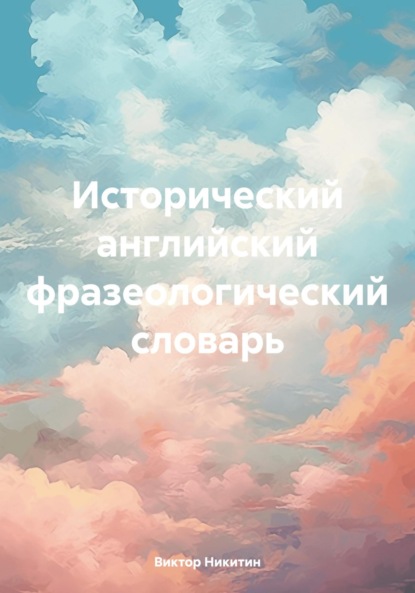По всем вопросам обращайтесь на: info@litportal.ru
(©) 2003-2024.
✖
Исторический английский фразеологический словарь
Настройки чтения
Размер шрифта
Высота строк
Поля
Cahoot. An Americanism for partnership or company, derived from the French capute, hut, cabin. Men who share a cabin or shanty are said to be “in cahoot.”
Caitiff. An old term of contempt for a despicable person, derived from the Latin captivis, a captive, slave.
Caius College. The name given to Gonville College, Cambridge, after its refoundation by Dr Caius by royal charter in 1558.
Cake Walk. A musical walking competition round a cake, very popular among the negroes of the southern states. The couple adjudged to walk most gracefully receive the cake as a prize.
Calcutta. From Kalikutta, “the village of Kali,” the goddess of time.
Caledonia. The country of the Caels or Gaels; Gadhel in the native tongue signified a “hidden cover.”
Caledonian Road. From the Royal Caledonian Asylum for Scottish orphans, now removed.
Calico. First brought from Calicut in the East Indies.
California. Called by Cortez Caliente Fornalla, or “hot furnace,” on account of its climate.
Caliph. From the Arabic Khalifah, a successor.
Called over the Coals. A corruption of “Hauled over the Coals.”
Camberwell. From the ancient holy well in the vicinity of the church of St Giles, the patron saint of cripples. Cam is Celtic for “crooked.”
Cambria. The country of the Cimbri or Cymri, who finally settled in Wales.
Cambric. First made at Cambray in Flanders.
Cambridge. From the bridge over the Cam, or “crooked” river. See “Cantab.”
52Camden Town. After the Earl of Camden, the ground landlord.
Camellia. Introduced into Europe by G. J. Camelli, the German missionary botanist.
Camera Obscura. Literally a dark chamber.
Cameron Highlanders. The Scottish regiment of infantry raised by Allan Cameron in 1793.
Camisard. A military term for a night attack, after the Camisards, Protestant insurgents of the seventeenth century, who, wearing a camise, or peasant’s smock, conducted their depredations under cover of night.
Camomile Street. From the herbs that grew on the waste north of the city.
Campania. An extensive plain outside Rome, across which the “Appian Way” was constructed. The word comes from the Latin campus, a field.
Campden Square. From the residence of Sir Baptist Hicks, created Viscount Campden.
Canada. From the Indian kannatha, a village or collection of huts.
Canary. Wine and a species of singing bird brought from the Canary Islands, so called, agreeably to the Latin canis, on account of the large dogs found there.
Candia. Anciently Crete, called by the Arabs Khand?, “island of trenches.”
Candy. An Americanism for sweetmeats. The Arabic quand, sugar, gave the French word candi.
Canned Meat. An Americanism for tinned meat.
Cannibal. See “Caribbean Sea.”
Cannon Row. The ancient residence of the Canons of St Stephen’s Chapel, Westminster Abbey.
Cannon Street. A corruption of Candlewick Street, where the candle-makers congregated.
Cannucks. See “K’nucks.”
53Canonbury. From the manorial residence of the priors of St Bartholomew Church, Clerkenwell, of which the ancient tower remains.
Cant. After Alexander and Andrew Cant, a couple of bigoted Covenanters, who persecuted their religious opponents with relentless zeal, and at the same time prayed for those who suffered on account of their religious opinions.
Cantab. Of Cambridge University. The River Cam was anciently called the Granta; hence the Saxon name of the city Grantabrycge, or the bridge over the Granta, softened later into Cantbrigge.
Canterbury. The fortified place or chief town of “Kent.”
Canterbury Music Hall. This, the first of the London music halls, opened in 1848, grew out of the old-time popular “free-and-easy,” or “sing-song,” held in an upper room of what was until then a tavern displaying the arms of the city of Canterbury, and styled the “Canterbury Arms.”
Cantlowes Road. See “Kentish Town.”
Canvas Back. A species of sea-duck, regarded as a luxury on account of the delicacy of its flesh. So called from the colour of the plumage on its back.
Cape Finisterre. Adapted by the French from the Latin finis terra, “land’s end.”
Capel Court. The Stock Exchange, so called from the residence of Sir William Capel, Lord Mayor in 1504.
Cape of Good Hope. So called by John II., King of Portugal, after Diaz had touched this point of Africa, as a favourable augury for the circumnavigation of the globe.
Cape Horn. Named Hoorn, after his birthplace, by Schouten, the Dutch navigator, who first rounded it.
Capri. From the Latin caper, a he-goat, expresses the island of wild goats.
54Capuchin Friars. From the pointed cowl or capuce worn by them.
Carat Gold. So called because gold and precious stones were formerly weighted against carat seeds or seeds of the Abyssinian coral flower.
Carbonari. Italian for charcoal-burners, in whose huts this secret society held its meetings.
Carburton Street. From the Northamptonshire village on the ducal estate of the ground landlord.
Cardiff. From Caer Taff, the fort on the Taff.
Cardigan. After Ceredog, a famous chieftain.











